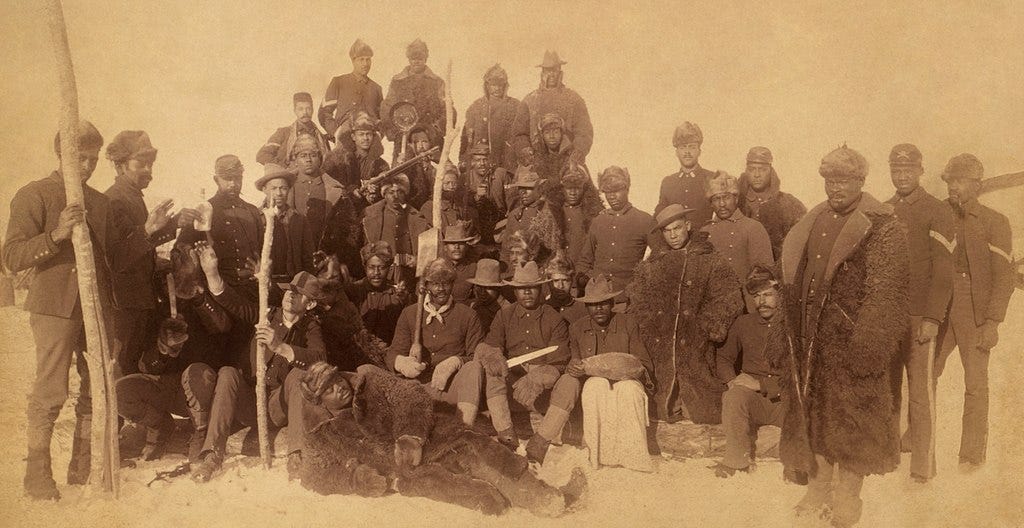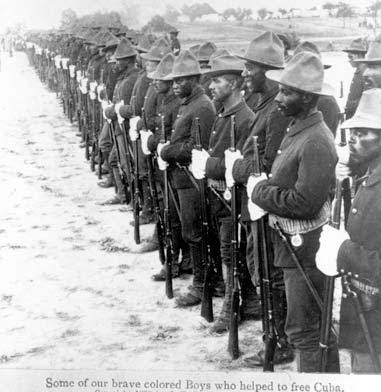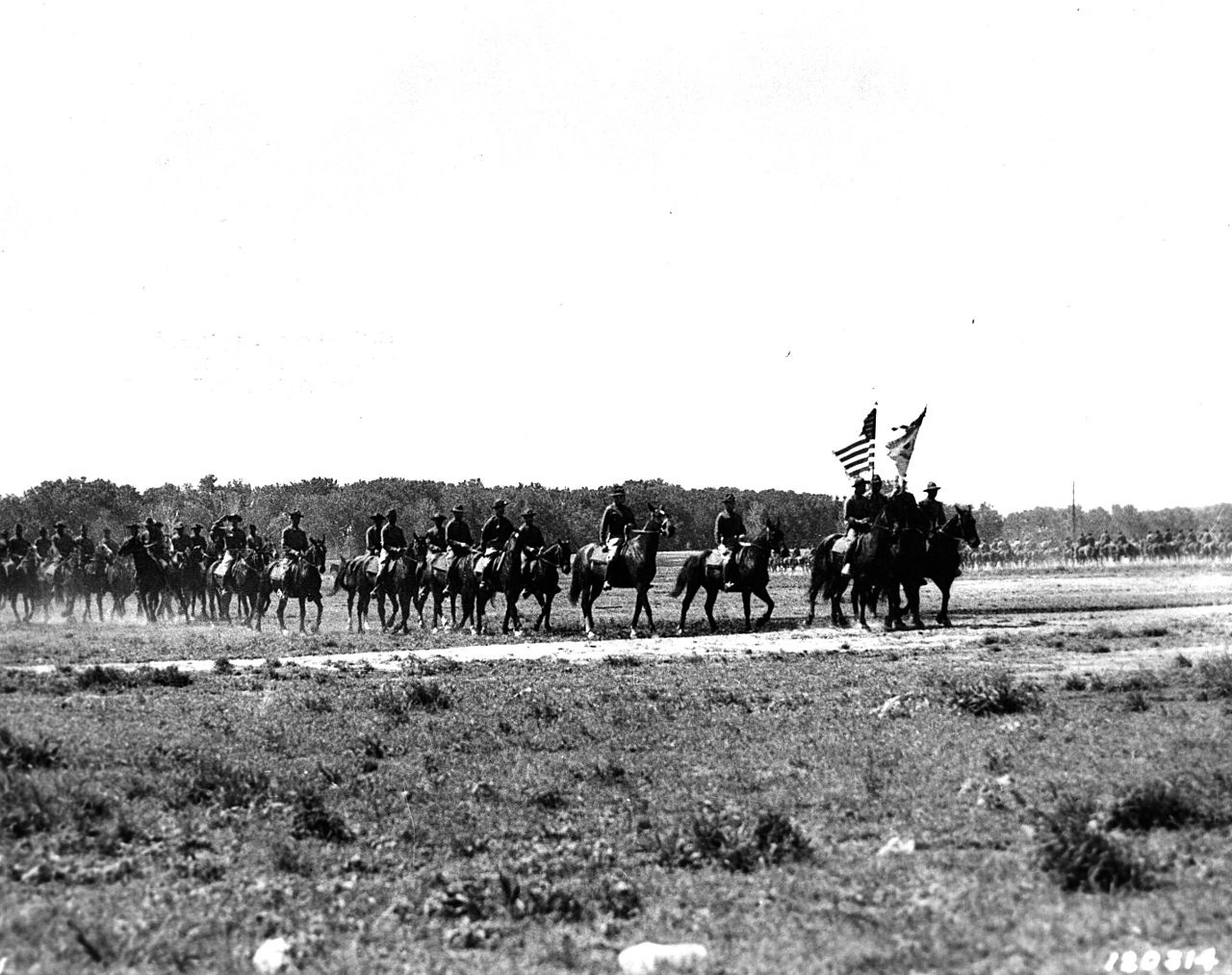Forgotten Frontiersmen
The Buffalo Soldiers and the Fight for Equality Among Soldiers

The wind whispers tales of forgotten heroes across the dusty plains of the American West. Here, where cowboys and outlaws dominate the popular narrative, rode the Buffalo Soldiers – a testament to courage, resilience, and the ongoing battle for equality.
From Bondage to Battlefield
Formed in 1866 just as the scars of the Civil War began to heal, the Buffalo Soldiers were a unique experiment. Six all-Black regiments, later condensed into four – the 9th and 10th Cavalry, and the 24th and 25th Infantry – were established by an act of Congress. These regiments, nicknamed "Buffalo Soldiers" by the Native American tribes they fought due to their hair resembling buffalo fur or the bison coats they sometimes wore, became integral to westward expansion.

The Buffalo Soldiers weren't simply warriors. They served as the guardians of the West, protecting settlers from dangers that lurked in the vast unknown. They built crucial infrastructure like forts and roads, forging a path for civilization across the unforgiving landscape, all while facing prejudice from those they protected. Their service wasn't limited to combat; they were instrumental in shaping the early years of America's National Parks. Buffalo Soldiers served as some of the first park rangers in Yosemite and Sequoia, safeguarding wildlife and ensuring responsible land use.
A Legacy of Segregation and Struggle
Despite their dedication and bravery, the Buffalo Soldiers served in segregated units until the Korean War. Opportunities for promotion were limited, and their pay was lower compared to white soldiers. This segregation wasn't just on the battlefield; it permeated every aspect of their lives. They faced discrimination in the towns where they were stationed, sometimes even violence. As veterans, they often struggled to access healthcare and benefits readily available to white veterans.
The story of the Buffalo Soldiers is a complex one, marked by both valor and struggle. They were more than just soldiers; they were frontiersmen, protectors, and conservationists who helped shape the American West. By acknowledging the challenges they faced alongside their remarkable accomplishments, we gain a deeper appreciation for their role in shaping American history. Their fight for equality extended beyond the battlefield, paving the way for future generations to strive for a more just society.

July 28 marks National Buffalo Soldiers Day, a day to commemorate the legacy of these brave African American soldiers who helped shape American history.
